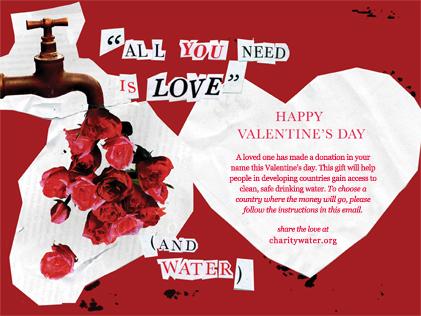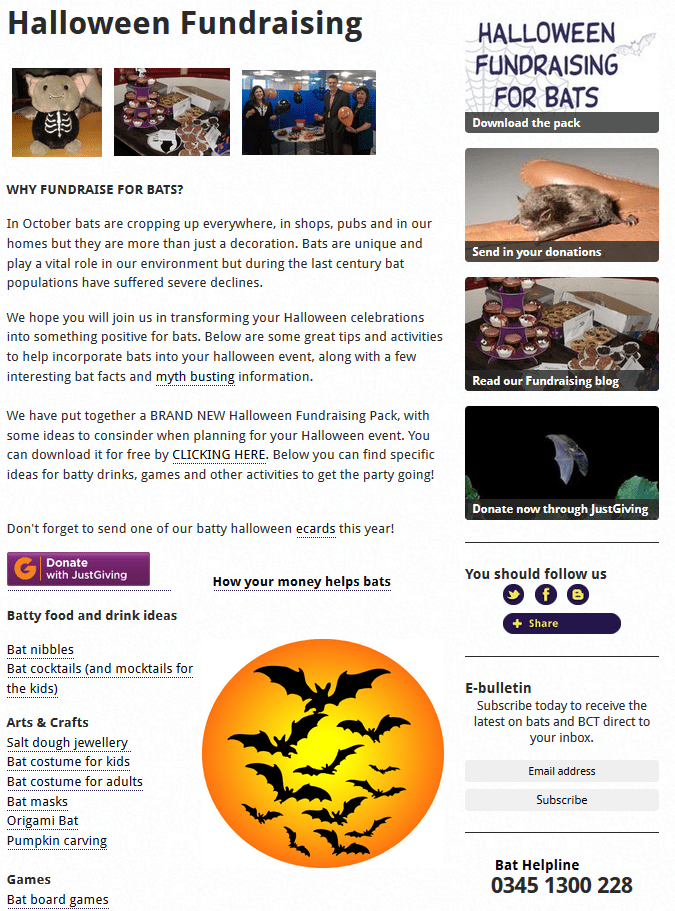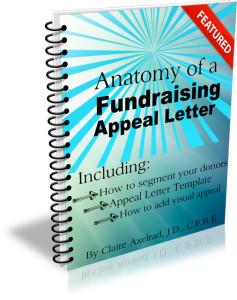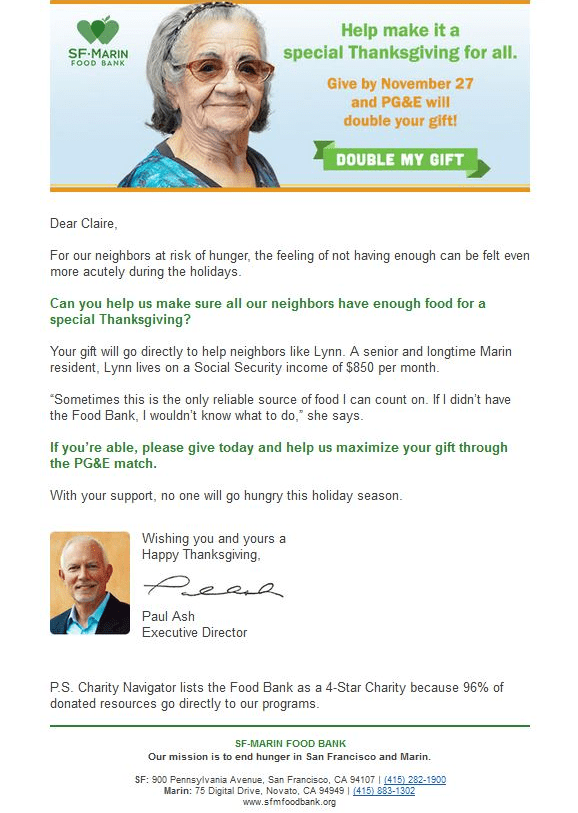 Who doesn’t love a holiday?
Who doesn’t love a holiday?
The very word conjures up notions of celebration, warmth and love.
If you’re a donor-centered fundraising practitioner, you’d be a fool not to take advantage.
Why not tap into pre-existing positive vibes to increase the chances your appeal will be warmly received?
After all, if you can channel something positive that’s more or less universally felt, this gives you a leg up.
It puts your donors in a giving mood using familiar symbols and traditions.
Except when it doesn’t.
A true holiday fundraising story
This childhood experience is one I’ve never forgotten — trick-or-treat for Unicef — a tradition begun by the organization in 1950 “to help kids who need more than candy.” I received my milk carton in school, covered it with bright orange paper emblazoned with Unicef branding, and proceeded (as instructed) to head out with my sister to ask neighbors to drop change in the cartons on the afternoon preceding the Big Night. We felt really good about helping other kids.
But then… we knocked on a real witch’s door. She SCREAMED at us: “HALLOWEEN IS FOR CHILDREN!” She then SMASHED some taffy candies through the smallish holes in our milk cartons and SLAMMED the door! Even at that young age, we were dumbstruck. Yes, Halloween was for kids. ALL kids. That’s WHY we were fundraising. What was making this woman scream at us? Why had she stuffed my carton so full there was no more room in it? I remember having a really tough time back home fishing the taffies out of the carton so I could access the already-amassed change – much less than I’d hoped to collect — and turn it over to Unicef.
There’s a reason I tell you this story. You see, for this woman Halloween simply did not resonate as a time for philanthropy.
Some holidays resonate more deeply than others. Some resonate with one crowd, but not with others.
Not all holidays are created equal.
Which is why you need to be thoughtful in applying any holiday fundraising or marketing strategy.
What I’ve found to work best:
Best in the U.S. for year-end fundraising
Thanksgiving. “Giving” is literally in the name of this holiday! It’s a time folks traditionally count their blessings and begin to think about those who are not as blessed. It makes sense to put out your most compelling appeal at a time people turn naturally towards gratitude. Plus, it’s a natural kick-off to the year-end giving season (50% of nonprofits receive a majority of their annual donations between October and December).
Christmas (Note: Use “The Holidays” if you want to be inclusive of different target markets). People are in a gift giving mood during December. 50% of nonprofits receive a majority of their annual contributions from October to December. In fact over 30% of donations are made during the month of December alone. And per a Network for Good report, a whopping 77% donors surveyed noted December 25th was the day that most inspired them to give.
Jewish holidays for Jewish organizations. Since Rosh Hashonah and Yom Kippur occur in September/October, and these high holidays are a time when people rededicate themselves to good deeds, this is also a good time to kick off calendar year-end fundraising.
Other times of the year
Easter for Christian organizations. (Note: if you have a lot of Christians in your target market, but aren’t Christian, you can do a “Spring” appeal using Easter colors. This makes your appeal emotionally powerful, without necessarily seeming “religious”).
What doesn’t really move the needle:
Mother’s Day. I’ve tried it more than once, and it doesn’t have the deep emotional resonance you might think. I’ve also tried Father’s Day, and that’s even more disastrous. I’ve wondered whether it’s because so many of us grew up resenting the obligatory nature of these “Hallmark Holidays,” as opposed to associating them with warm, fuzzy feelings. Who knows? It might work for organizations where the [mother/daughter/son relationship has primary resonance, in which case it’s worth a test.
Awareness days. There are many of them (e.g. World Hunger Day; World Water Day; Cancer Awareness Day), and they usually don’t work to inspire philanthropy. Again, they seem “made up,” and a bit preachy and self-promotional. Educating people doesn’t inspire them to give. If you do use these days, they’re best used as a deadline for giving rather than a central reason.
Your organization’s anniversary. While this may mean a lot to you, it has no emotional resonance with the majority of your donors. People don’t give because you’ve been around a long time. Venerability is one factor, but certainly not the most compelling one.
How to take advantage
Zero in on the old-fashioned, corny look and emotional feel of the holiday.
Tap into people’s nostalgia and memories. This is what tugs on their heart.
Key into donor expectations around the holiday, and make your appeal reflect this (e.g., turkey clip art; holly clip art; holiday colors).
Talk about people’s traditions. The food they remember eating. The images they remember coloring in grade school.
Remember what it felt like on Christmas morning when you got to open a gift? Max won’t have that happy feeling this year. Unless you help.
Remember the excitement of Thanksgiving dinner? Jenny won’t have that this year. Unless you help.
Test and verify
There is no one right way to do holiday fundraising!
What works for someone else may not work for you. And vice-versa.
Despite everything I’ve shared above, it’s not necessarily a bad idea to break the mold sometimes. Especially during times of the year when not too much is at risk, and you’re doing “plus” fundraising.
In practice, I’ve had great success using minor holidays as fundraising occasions.
Even if they’re not universal “best practices,” outside-the-box holiday fundraising can make you stand out if you choose dates not everyone else is choosing.
Here are some examples:
VALENTINE’S DAY
 This was actually a card informing someone that a gift had been made in their honor on Valentine’s Day. It’s filled with traditional – and corny – hand-made valentine imagery (hearts, flowers and the color red), yet it also does a terrific job showcasing the organization’s mission. It’s sweet, unexpected and powerful.
This was actually a card informing someone that a gift had been made in their honor on Valentine’s Day. It’s filled with traditional – and corny – hand-made valentine imagery (hearts, flowers and the color red), yet it also does a terrific job showcasing the organization’s mission. It’s sweet, unexpected and powerful.
HALLOWEEN

Clearly, there’s a direct tie-in to Halloween for Bats Conservation Trust. So, despite my Unicef story, this deeply resonates for this organization. But I’ve actually healed from my Unicef experience and sent Halloween cards with a message along the lines of:
You’re spooktacular! Because of you, _________ (impact example).
Usually I’ve done this as a special, unexpected thank you – your overall fundraising strategy should definitely incorporate multiple thank you’s if you want to inspire repeat gifts – but you could also do this as a special appeal.
Who’s terror-ific? You’re terror-ific! Because you can assure Jenny need not live in fear of (problem example, eg. abusive spouse; cancer; hunger, eviction). Please make this a boo-tiful year for someone whose life is much more about tricks than treats.
THANKSGIVING
This is a straightforward appeal reminding people how bad the holidays can feel when you’re living on the edge. It speaks directly to people’s natural inclination to consider their blessings at this time of year, and to share with others if they’re able. The folks at Sumac shared a great example, suitable for Thanksgiving, Christmas or Hanukkah, offering donors a greeting card to send back with their gift to let homeless living on the streets of Toronto know they’re not alone. [I did something similar when I was at the San Francisco Food Bank. In an appeal asking donors to pay for a turkey dinner, we included cards for people to send back with a handwritten message. We told them we’d deliver their card together with the turkey. We were overwhelmed by donor generosity, both from the wallet and the heart! ]
Summary
- It’s great to tap into the holidays where folks are already feeling grateful and generous.
- It’s also great to surprise and delight folks by showing up in their mailboxes when no one else is there.
- Dare to be corny.
- Dare to be creative.
- Dare to test new ideas when not too much is at risk.
What holiday fundraising successes/failures have you had? Please share so we can learn from each other.
Get Your Step-by-Step Guide to Crafting a Killer Appeal Letter or Email

This 62-page guide will take your appeal letter from run of the mill to out of the ballpark!
I guarantee you’ll raise more money if you follow the guidelines in my Anatomy of a Fundraising Appeal Letter plus Sample Template. And if you’re not happy for any reason, you’ve got my 30-day, no-questions-asked refund policy. Make the next two months really count! To your success!





